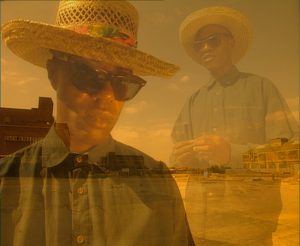Tiana Reed at The Paris Review:
 I first saw an Akomfrah film before I knew it was an Akomfrah film. I remember watching the documentary Seven Songs for Malcolm X (1993) in my single dorm room at the top of a hill on McGill’s campus in Montreal. I was alone in college, surrounded by people, and had settled into a life of solemnity. My first laptop had a disc drive, and I had gotten into the habit of borrowing DVDs from the university library in a forlorn attempt to stay in at least one night on the weekends. I, like my father, had gone through a phase contemplating conversion to Islam. Converting from what, I never knew. I didn’t take it as seriously as he did (I never went to mosque), and mostly I just crushed on the hero, who I referred to in the margins of his autobiography as “Mal.” (Unlike my entrepreneurial Jamaican father, I had confused wanting to be a black Muslim with wanting to be a black Marxist.)
I first saw an Akomfrah film before I knew it was an Akomfrah film. I remember watching the documentary Seven Songs for Malcolm X (1993) in my single dorm room at the top of a hill on McGill’s campus in Montreal. I was alone in college, surrounded by people, and had settled into a life of solemnity. My first laptop had a disc drive, and I had gotten into the habit of borrowing DVDs from the university library in a forlorn attempt to stay in at least one night on the weekends. I, like my father, had gone through a phase contemplating conversion to Islam. Converting from what, I never knew. I didn’t take it as seriously as he did (I never went to mosque), and mostly I just crushed on the hero, who I referred to in the margins of his autobiography as “Mal.” (Unlike my entrepreneurial Jamaican father, I had confused wanting to be a black Muslim with wanting to be a black Marxist.)
Whatever I wanted to be, I could dream up. Whatever I was, I did not know. In Seven Songs for Malcolm X—which features interviews with Betty Shabazz, Spike Lee, Robin D. G. Kelley, and others—the activist Yuri Kochiyama recalls the hours before Malcolm X was assassinated at the Audubon Ballroom in New York City: “There was something in the air, I wouldn’t know how to pinpoint it, but there seemed to be a lot of anxiety.”
more here.
